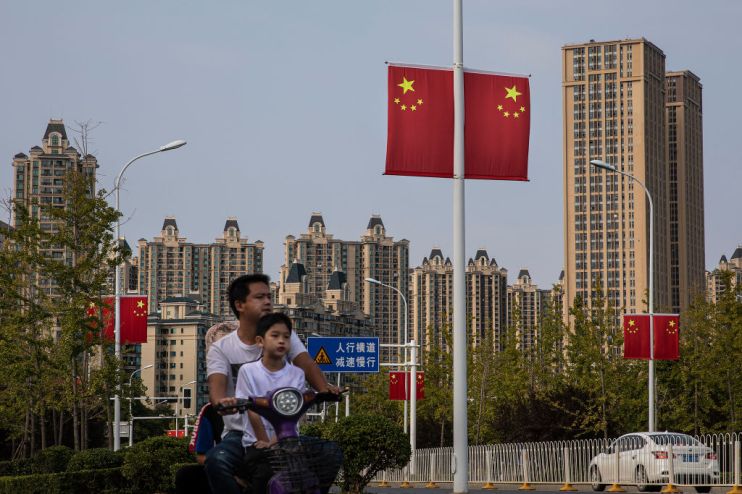China’s Q1 GDP exceeds expectations amid policy support, but all is not well

China’s economy surged by an impressive 5.3 per cent in the first quarter, surpassing market forecasts and sparking optimism for a revival in manufacturing.
This strong growth, along with a notable 1.6 per cent quarterly GDP increase from January to March, underscores China’s economic strength and ambition. However, beneath the surface, signs of economic turbulence persist.
The impressive growth witnessed in the first quarter outpaced the 4.6 per cent forecast predicted by economists and exceeded the projected 5.2 per cent expansion for the entire year in 2023.
“Fiscally-fuelled improvement unlikely to last long. Recovery clearly remains fragile. While we expect short-term fiscal stimulus to continue to support the economy, this is unlikely to prevent a renewed slowdown,” said Zichun Huang, China Economist at Capital Economics.
“And the economy is facing structural headwinds, particularly in the real estate sector. Despite the ongoing declines in home sales, which continued into March, the correction in property construction has barely begun. We expect a sharp downward adjustment in the coming years, weighing on economic growth over the medium-term.”
China has set an ambitious economic growth target of around 5 per cent for the year, a goal that some economists view as challenging.
In March, inflation in China fell below analysts’ estimates, indicating persistent deflationary pressures. Policymakers are working to stimulate domestic demand to counteract a property crisis, but challenges remain.
China’s economy has struggled to rebound strongly and sustainably from the COVID-19 pandemic, facing hurdles such as a prolonged property downturn, increasing local government debts, and subdued private-sector spending.
Last week, Fitch, a US-based rating agency, downgraded its long-term outlook on China to negative while maintaining its A+ credit rating. This reflects concerns about China’s shift away from growth driven by the property sector, introducing greater uncertainty.
China’s economic landscape remains fraught with challenges, including deflationary trends, subdued consumer optimism, and financial stress among key players in the real estate sector. Notably, the property market has stagnated due to substantial debt burdens, contributing to a decline in interest for property investments.
Despite government efforts to support the property market, challenges persist. New home prices experienced their sharpest decline in over eight years in March, dropping by 2.2 per cent year-on-year and 0.3 per cent month-on-month.
Property investment in China declined by 9.5 per cent in the first quarter compared to the previous year, indicating ongoing obstacles to recovery.
This decline follows a 9.0 per cent drop in the January-February period, indicating a prolonged path to a solid property market rebound.
“We continue to see a two-speed economy, with exports outperforming in H1 2024 and domestic demand staying weak throughout the year,” said Raymond Yeung, Chief Economist, Greater China at ANZ.
“Our view on China’s domestic demand remains unchanged…. Due to the negative wealth effect, both domestic consumption and investment are likely to underperform. We estimate the property downturn will drag GDP growth by 0.3ppt in 2024.”